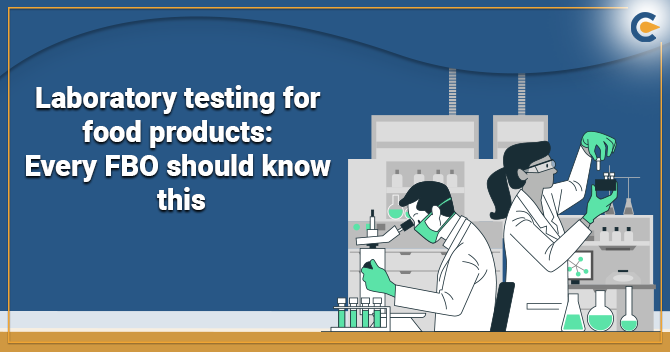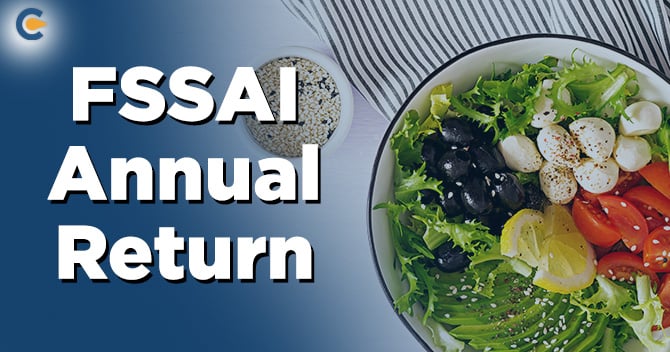Recently, FSSAI has come out with draft a new regulations for Genetically Modified Food (GMF), proposing mandatory prior approval from the regulator to sell, manufacture, and import food or ingredients produced from genetically-modified organisms. The proposed FSS (Genetically Modified Foods) Regulations, 2022, will apply to GMOs Genetically Modified Organisms intended for food use under the Food Safety & Standards Authority of India. Scroll down to check FSSAI Regulations for Genetically Modified Food.
What is GMO?
GMO stands for Genetically Modified Organisms[1] means any living organism that possesses a unique combination of genetic material attained through the use of modern biotechnology. Most animals that are Genetically Modified Organisms are produced for use in laboratory research. Such animals are used as models to study all the functions of specific genes & generally, how the genes relate to health & diseases. Some Genetically Modified Organisms or GMO animals, however, are produced for human consumption.
Genetically Modified Organisms are perhaps most visible in the produce section, and the 1st Genetically Engineered Plants or GEPs to be produced for human consumption were first introduced in the mid-1990s. Today, approximately 90% of the soybeans, corn & sugar beets on the market are Genetically Modified Organisms.
In the future, Genetically Modified Organisms are likely to continue playing a vital role in biomedical research. Genetically Modified Organism foods may provide better nutrition & perhaps even be engineered to contain medical compounds to increase human health. If GMOs or Genetically Modified Organisms can be shown to be both healthful & safe, customer resistance to these products or items will most likely diminish.
A Brief on FSSAI Regulations for Genetically Modified Food
- The proposed FSSAI Regulations for Genetically Modified Food will apply to Genetically Modified Organisms or GMOs intended for food use as per FSSAI.
- The Regulations for Genetically Modified Food, once implemented, will also be applicable to only food ingredients produced from Genetically Modified Organisms that include modified DNA and for food ingredients produced from Genetically Modified Organisms that do not contain modified DNA but comprises additives or processing or ingredients aids derived from GMOs.
- The draft regulations for Genetically Modified Food said, “No person or individual shall pack, sell, store, manufacture, market or otherwise distribute or import any food/food ingredient produced from Genetically Modified Organisms, except with the prior approval of the Food Authority”.
- All food products or items (Genetically Modified Organisms intended for food use & food ingredients produced from Genetically Modified Organisms that contain modified DNA should be labelled with the words contains GMOs. This is subject to the condition that the food product contains 1% or more of the Genetically Modified ingredient considered individually.
- All the labelling requirements will not be applicable to Genetically Modified food items in which the modified DNA is not detectable.
Procedure for Grant of Prior Approval – Regulations for Genetically Modified Food
Following is the procedure for grant of Prior Approval:
- The FBO (Manufacturer or Importer) of a Genetically Modified Food shall submit an application as per the prescribed format by the FSSAI, along with vital documents & fees.
- If the application is for a Genetically Modified Organism referred to as in Clause (a) of sub-regulation (2) of Regulation (1), clearance from GEAC or Genetic Engineering Appraisal Committee, the National Competent Authority for the Environment risk assessment shall be submitted to the FSSAI.
- If a Genetically Modified Organism referred to as in-clause (a) of sub-regulation (2) of Regulation 1 is to be used as seeds/other plant-propagating material (cultivation), FBO shall submit an application to the GEAC, the Ministry of Environment Forest & Climate Change for compliance to Rules 1989 for the use, import, storage, export, and manufacture of hazardous micro-organisms, GEOs or genetically engineered organisms/cells rules, 1989. The application for the same may be submitted in the relevant Form-IIB, Application for Environmental Approval of Trans generic Plants (GMP or Genetically Modified Plants) of GEAC.
- So, to prepare its opinion, the FSSAI shall verify that the particulars & documents submitted by the application are as per the information sought & examine whether the food is safe for consumption.
- The FSSAI may direct the applicant to submit extra supporting documents, information or clarifications, if required, within a specific time period.
- Also, the Food Authority may either grant approval/reject the application as per the prescribed format by the FSSAI on the basis of the safety assessment of the food.
- The FBO shall, after the grant of approval, obtain a License in accordance with the procedure specified in the FSS (Licensing & Registration of Food Businesses) Regulations 2011.
- Once the approval has been issued, the Authorised Holder & the parties concerned shall comply with any restrictions/conditions which have been imposed in the approval & shall, in particular, ensure that products not covered by the approval aren’t placed on the market as food.
- The FBO may file an appeal before the Chairperson of the FSSAI or the Food Authority within 30 days of receiving the rejection letter.
- The FSSAI may, for reasons to be recorded in writing, suspend/cancel any approval granted to any FBO.
- In case an FBO has reason to believe that the Genetically Modified Food for which the approval was granted poses any risk to health, he or she shall immediately suspend the import, sale, manufacture, or distribution of such an article of food & take steps to recall the same under intimation to Food Authority as per the provisions of the Food Safety & Standards (Food Recall Procedure) Regulations, 2017.
- A GMO or Genetically Modified Organism with a Unique Identifier 9-digit Code of the Organisation for Economic Cooperation & Development that is approved for food use by the Food Authority will require no further approvals. However, if the GMO is to be used as seed/other plant-propagating material, approval is needed from GEAC.
Conclusion
The publication of the draft regulations for Genetically Modified Food and the possibility of officially permitting the use of GMO food products in India has raised many debates among the public. Environmentalists strongly oppose the use & consumption of Genetically Modified Organisms and food products with adverse impacts on food safety, the environment, and health at large, whereas others rely on the perceived benefits of implementing this novel technology for better yield, less food wastage & productivity.
Read Our Article:FSSAI Food License: Everything You Need to Know











